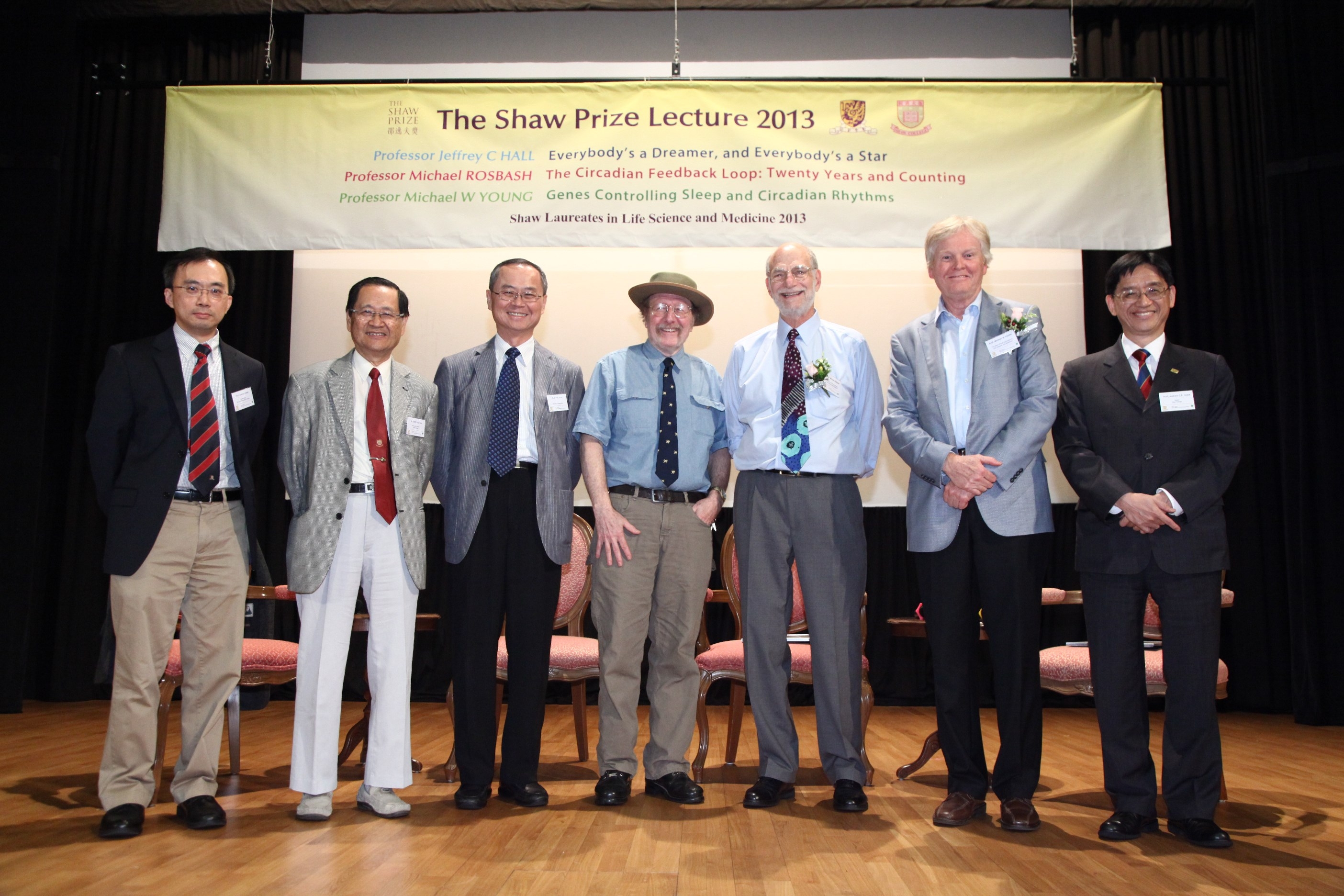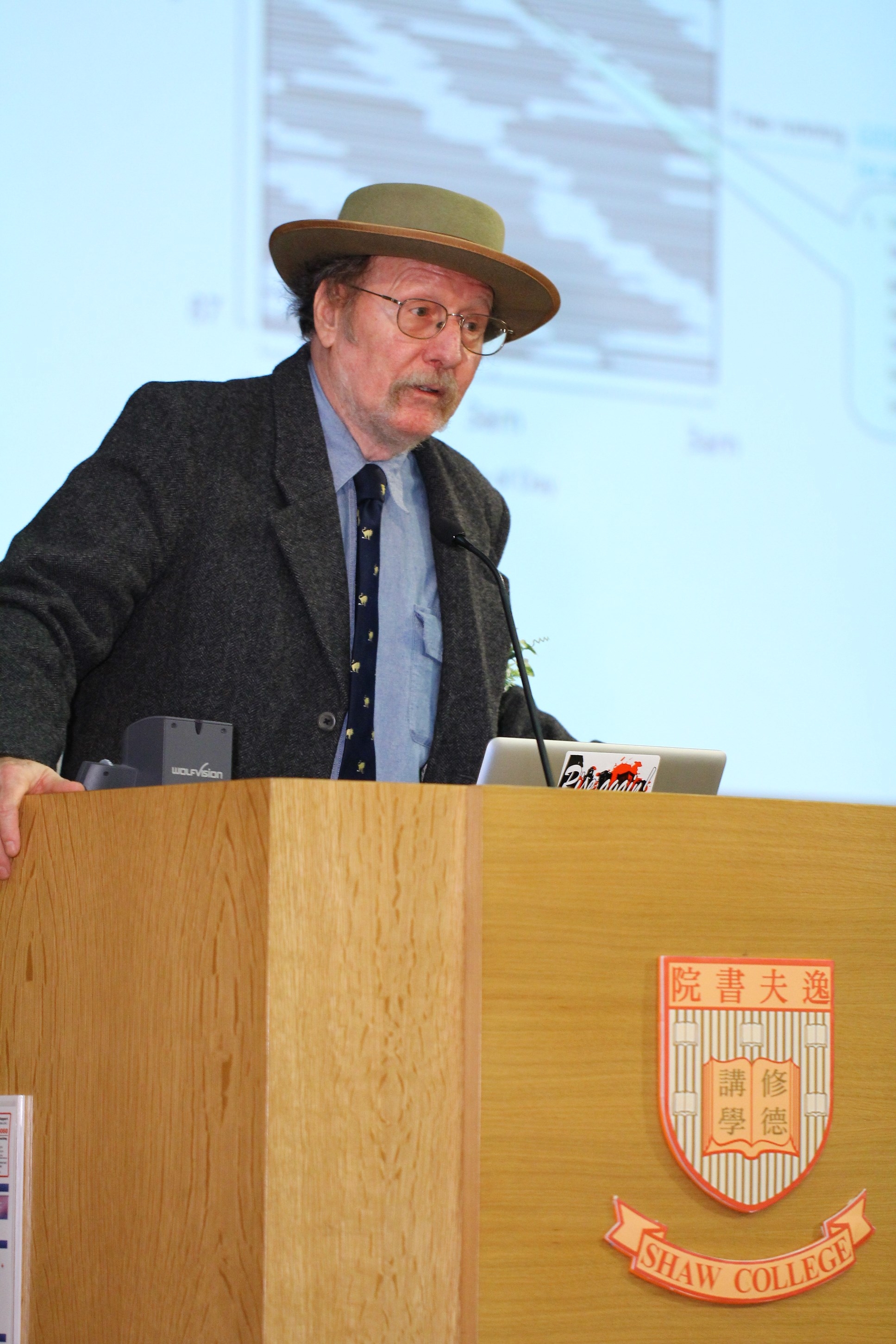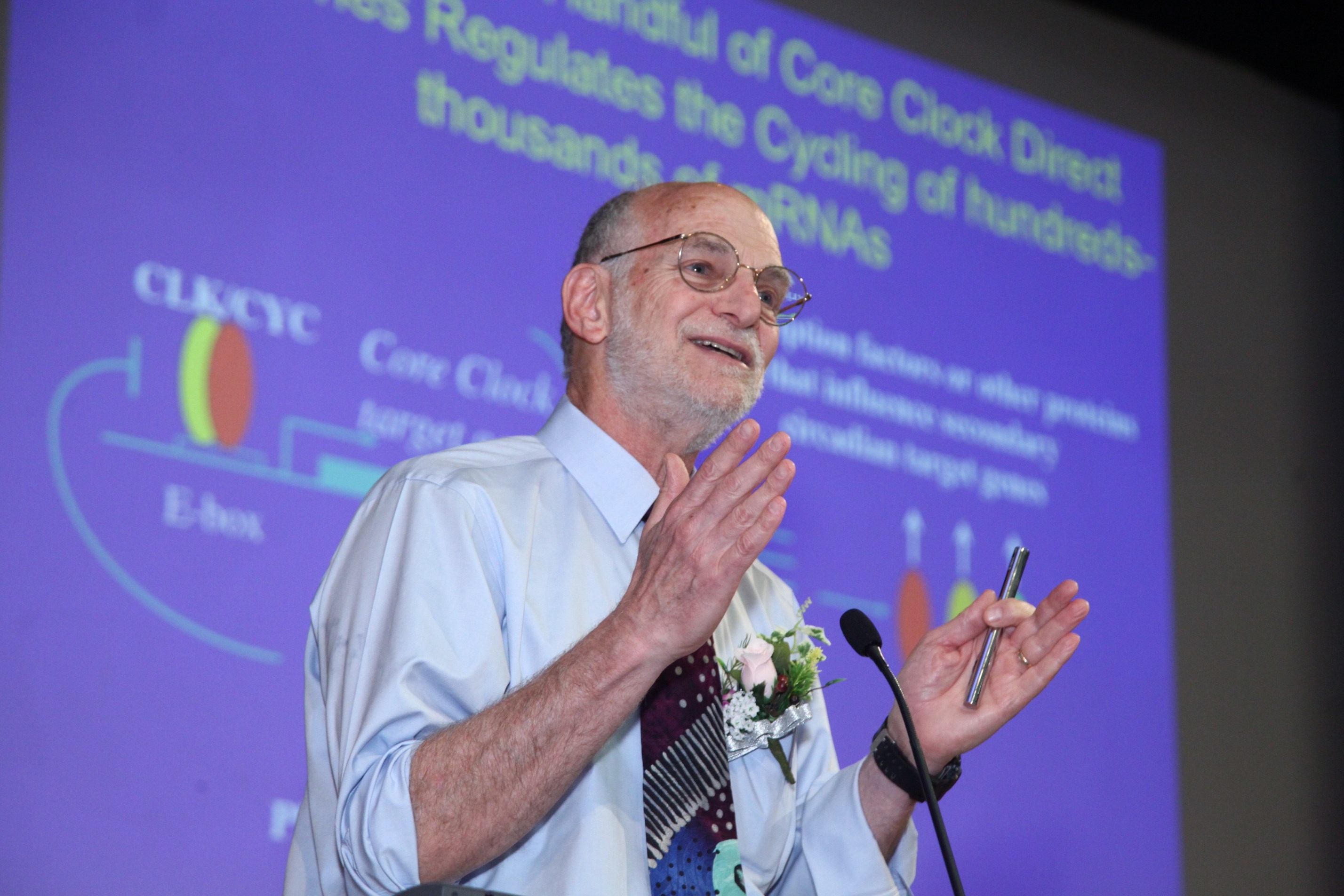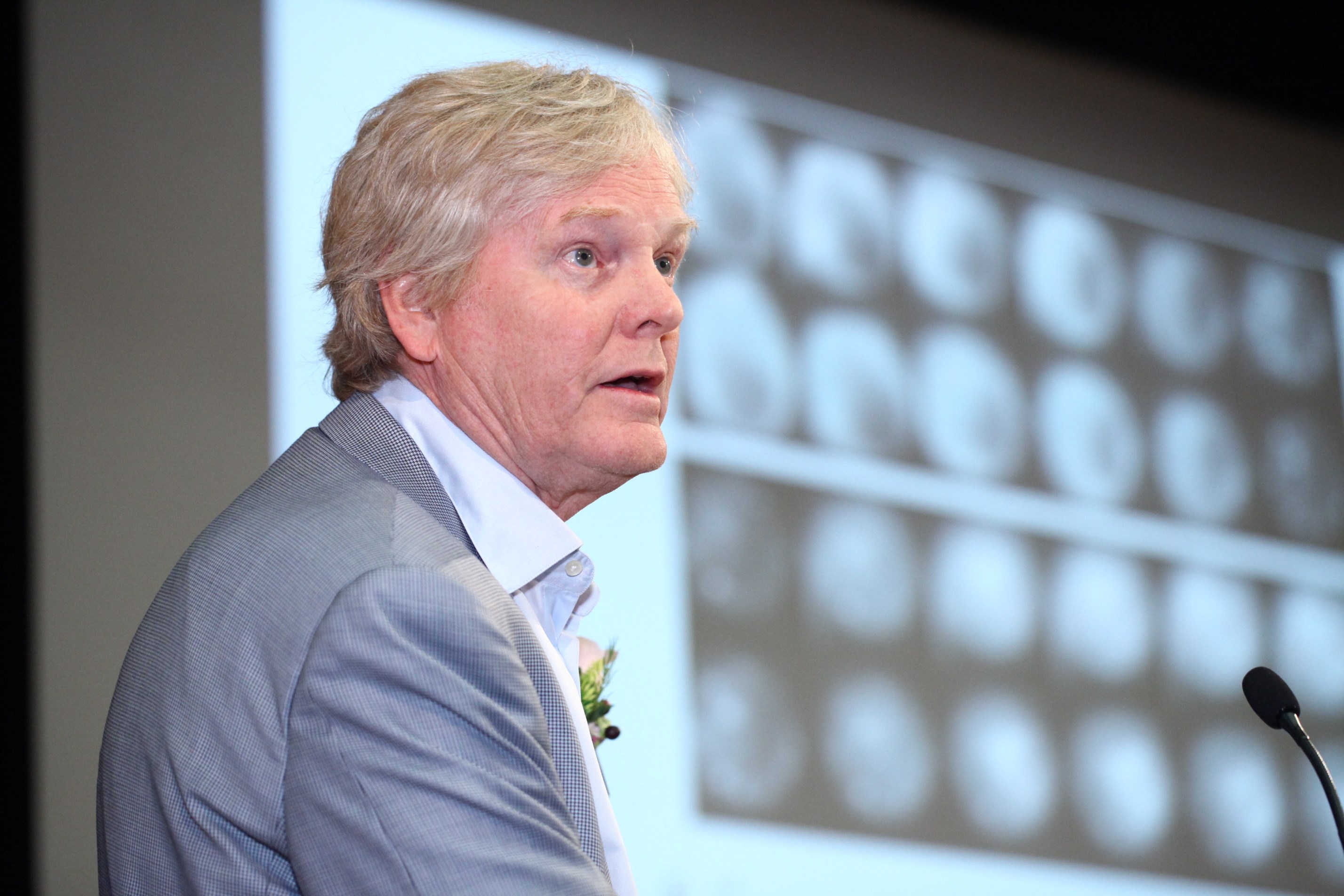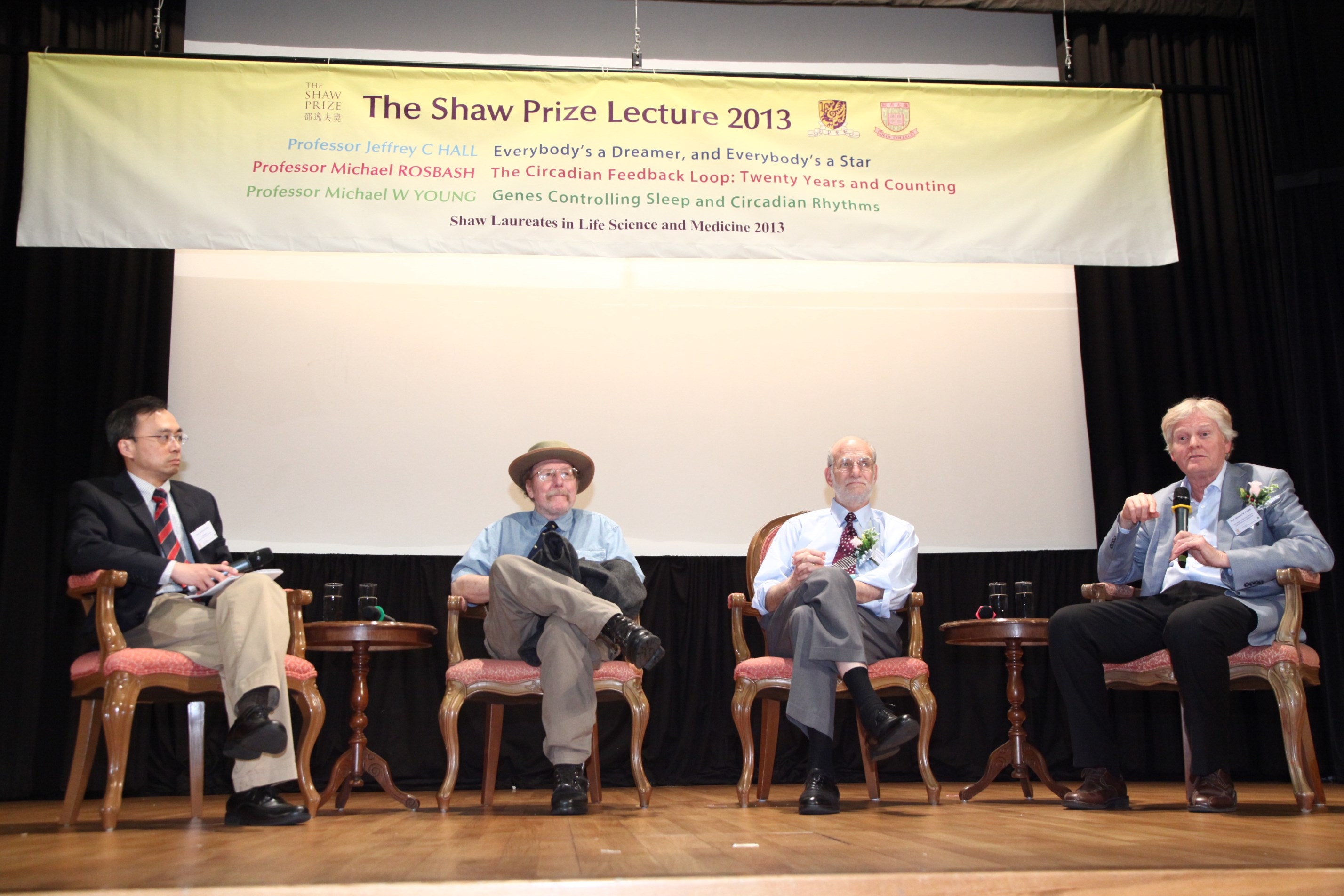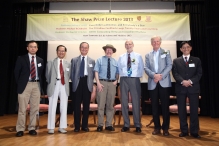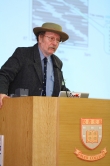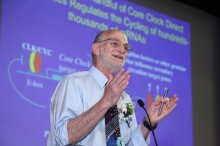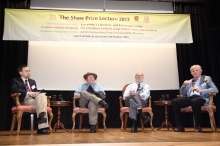CUHK
News Centre
Shaw Laureates in Life Science and Medicine 2013 Spoke at CUHK
Prof. Jeffrey Hall, Prof. Michael Rosbash and Prof. Michael Young, Shaw Laureates in Life Science and Medicine 2013, gave a lecture on ‘Everybody’s a Dreamer, and Everybody’s a Star’, ‘The Circadian Feedback Loop: Twenty Years and Counting’ and ‘Genes Controlling Sleep and Circadian Rhythms’ respectively yesterday (24 September) at Shaw College of The Chinese University of Hong Kong (CUHK). The lecture attracted close to 420 staff and students from CUHK and local universities, professionals in the field, as well as secondary school teachers and students.
The Shaw Prize in Life Science and Medicine 2013 was awarded to Prof. Jeffrey Hall, Professor Emeritus of Biology, Brandeis University; Prof. Michael Rosbash, Professor of Biology, Peter Gruber Endowed Chair in Neuroscience and HHMI Investigator, Brandeis University; and Prof. Michael Young, Vice President for Academic Affairs and Richard and Jeanne Fisher Professor, The Rockefeller University, in recognition of their discovery of molecular mechanisms underlying biological circadian rhythms.
Biological rhythms have been widely understood as mechanisms in human beings’ regular sleepiness at bedtime and the distressing effects of jet lag or the behavior of flowers that open by day and close at night. In fact, these daily (circadian, latin for ‘about a day’) rhythms have been known throughout history, but the nature of the underlying clock had remained obscure until studies on the fruit fly by the late Seymour Benzer uncovered a gene that could be mutated to make the clock run faster or slower or not at all. In itself, this did not explain anything about how the clock worked, but it opened the door for this year’s Shaw Prize laureates, who conducted a series of groundbreaking studies on the mutant fruit flies, uncovering the molecular mechanisms that control circadian rhythms not only in flies, but, remarkably, also in humans.
Professor Hall and Professor Rosbash, working as a team at Brandeis University, and Professor Young, working independently at Rockefeller University, made the first breakthrough in 1984 by cloning the Period gene, the gene in the fruit fly Drosophila melanogaster that was known to alter the animal’s daily rhythms when mutated. The next breakthrough came with the discovery, by Professor Hall and Professor Rosbash, that both the mRNA and protein encoded by the Period gene show circadian oscillations in abundance in the Drosophila brain. Moreover, these rhythmic oscillations are altered in flies with Period gene mutations that alter the fly’s daily rhythms. This provided the first clue to the fundamental mechanism controlling the circadian clock: a feedback loop in which the protein product of the Period gene cyclically represses its own production on a 24-hour timescale. Subsequent work by Young and the Hall/Rosbash team revealed additional genes involved in the clock mechanism and provided detailed information on how the products of those genes function to control the daily oscillating levels of Period mRNA and protein that govern the animals daily rhythms, as well as the mechanisms that allow for the clock to be reset by light.
The same fundamental mechanisms of circadian rhythms first identified by Professor Hall, Professor Rosbash and Professor Young in the fruit fly also operate in other organisms, including humans. In fact, links have already been made between these mechanisms and human disease, with two different counterparts of a fly circadian rhythm gene showing associations with hereditary syndromes that affect circadian patterns of sleep in humans.
About The Shaw Prize
The Shaw Prize is an international award to honour individuals who are currently active in their respective fields and who have achieved distinguished and significant advances, who have made outstanding contributions in culture and the arts, or who in other domains have achieved excellence. The award is dedicated to furthering societal progress, enhancing quality of life, and enriching humanity’s spiritual civilization. Preference will be given to individuals whose significant work was recently achieved.
The Shaw Prize was established under the auspices of Sir Run Run Shaw in November 2002. It consists of three awards: the Prize in Astronomy, the Prize in Life Science and Medicine, and the Prize in Mathematical Sciences. This is the tenth year that the Prize has been awarded since 2004.
(from left) Prof. Andrew M.L. Chan, Professor of School of Biomedical Sciences, CUHK; Prof. Chen Char-nie, Honorary Fellow of Shaw College; Prof. Fok Tai-fai, Pro-Vice-Chancellor, CUHK; Prof. Jeffrey C. Hall, Prof. Michael Rosbash and Prof. Michael W. Young, the Shaw Laureates in Life Science and Medicine 2013; Prof. Andrew C.F. Chan, Head of Shaw College.


